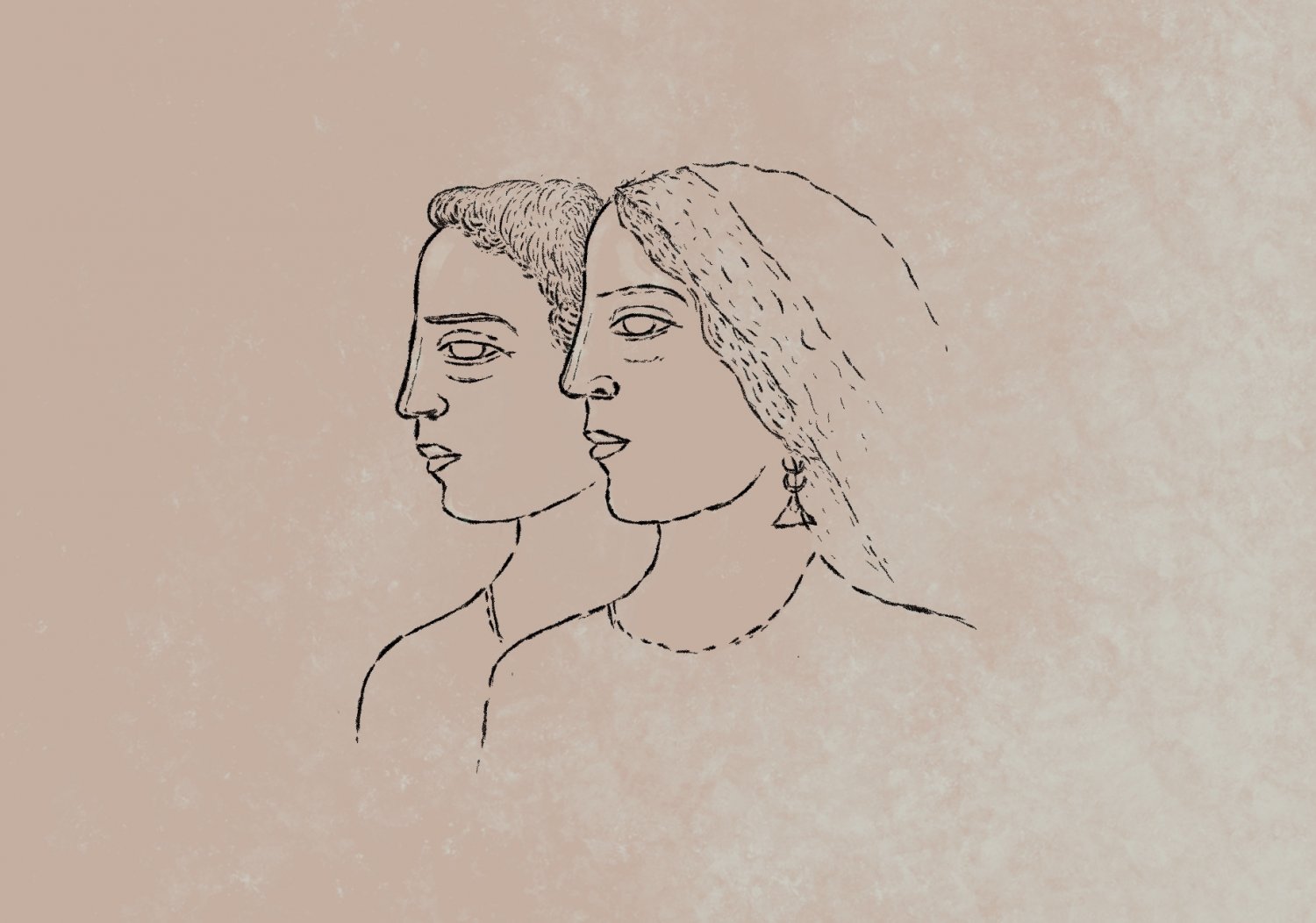Wardeh, 30, is a Palestinian mother of three.1 She holds a Palestinian Authority (PA) ID card, and her husband, Sam, and their three children hold Israeli permanent-resident ID cards. Under Israeli law, these different cards carry vastly different rights and requirements (see Permanent Status and Closure and Access to Jerusalem). Wardeh falls into the category of persons who are subjects of the military commander of the occupied West Bank and thus must operate within the military legal system, including being subject to the regime of closure, meaning that she cannot enter Jerusalem without a military permit. By contrast, as an Israeli resident, Sam is entitled to live and work in Jerusalem, but even so, with limited rights relative to a citizen.

In Limbo on the Waiting List: The Life of a “Stay Permit” Spouse
Snapshot
Wardeh, 30, holds a Palestinian Authority (PA) ID card. Her husband, Sam, and their three children hold Israeli permanent-resident ID cards. When they decided to marry, they knew that Israel’s permit system would complicate their daily lives, but they could never have imagined to what extent.
Love Prevails
Wardeh and Sam met over 12 years ago while they were students at a Palestinian university in the occupied West Bank; they fell in love and decided to marry after graduation.
When Sam told his father that he wanted to marry a young woman holding a PA ID card, his father advised him to rethink his decision; Israel’s ban on family unification applications would complicate their lives, and Sam would carry double the burden of other Palestinian Jerusalemites.
But love prevailed, and Wardeh and Sam got married. She was 22 years old.
Initially, Wardeh lived illegally in Jerusalem (inside the Separation Wall) without the required documents for almost three years. When she turned 25, her husband was allowed under Israeli law to apply for a stay permit on her behalf through the Israeli Ministry of Interior and the Coordination of Government Activities in the Territories (COGAT). The stay permit provides, on a case-by-case basis, exceptions to the blanket ban on family unification.
Palestinian Lives at the Mercy of Israel’s Permit Regime
Wardeh and Sam applied for the stay permit under Citizenship and Entry into Israel Law (Temporary Order, also referred to by Palestinians as the ban on family unification) when Wardeh was 26. When asked why they had not applied when she was eligible at age 25, Wardeh responded, “Preparing for the application takes a lot of time and effort. And I can’t do anything or help my husband; he needs to do everything himself.”
Even though her husband had no issues with his residency and had lived all his life in Jerusalem, gathering the required documents to apply for the stay permit took over a year.
Wardeh’s application was processed by the Israeli Ministry of Interior within eight months, which is relatively quick for such applications. After receiving this approval, she was required to submit the permit application in person at the COGAT office in the West Bank. Before issuing her permit, the COGAT issued her a special biometric ID for finger and retinal identification. Declining it was not an option.
Wardeh received her stay permit within a month of going to the COGAT. She was then able to cross checkpoints to enter Jerusalem legally. She started going more often to family and friends’ gatherings and weddings outside of Jerusalem. Previously she had avoided most outings because she feared getting stopped by Israeli soldiers and/or police or at one of the flying checkpoints that are prevalent throughout East Jerusalem. Police commonly stop Palestinians at these checkpoints’ random searches.
After more than four years of marriage, Wardeh’s presence in her own house was finally legal. Yet her anxiety remained. “Every time I pass a military checkpoint, I am always worried they will deny my entry and separate me from my children. The Israeli government revokes permits any time it chooses,” she shared.
Restrictions on movement
Wardeh described the difficulties she faces when moving around Jerusalem. “I spend most of my salary on taxis to drop off and pick my kids from school and after school activities. It is hard to use public transportation with three children.” In general, Palestinians who hold PA ID cards with stay permits are not allowed to drive in Jerusalem or Israel. In March 2021, the COGAT issued a new procedure permitting Palestinians who have been given 36 continuous months of stay permits to apply for another military permit to allow them to drive their spouse’s car.
Wardeh is still waiting for its answer. “Again, I am on the waiting list.” Until she gets it, she can’t drive her kids to school or to after school activities.
The new COGAT procedures are subject to additional military and security checks. Applications can be rejected for “security reasons,” a catchall category that is never defined.
Wardeh is not allowed to travel through Israel’s international airports; she must cross Allenby Bridge to Jordan and then fly from Queen Alia International Airport in Amman. For a family, this is not a cheap trip: “Every time we travel, the trip to Jordan adds about $800 to the transportation cost.” Last summer, Wardeh and Sam decided to take their children on a family vacation, and so Sam applied for Wardeh to be able to travel via Ben Gurion Airport. (She can’t apply for herself.) This application is also submitted to the COGAT 10 days before the anticipated travel date; the COGAT approves or rejects applications as it sees fit.
Wardeh was given a permit to travel through the airport, but the experience entailed a draconian security check. “We almost missed our plane. I was strip-searched three times. The security officer tried to force me to walk through the security machines even though I was six months pregnant.” Her seven-year-old son asked the security officer at the airport why she was treating his mother differently.
Health and social insurance
Wardeh does not have health insurance. Her husband goes periodically to check whether she has been approved for coverage, and he is always told that the Israeli National Insurance Institute (NII) has not yet authorized coverage for her. “I rarely go to the doctor. I gave birth to three children, and I am waiting for approval to get the checkups I need.”
In 2020, the Israeli Ministry of Interior reported that 12,700 Palestinians who hold PA IDs and stay permits live in Jerusalem and Israel by virtue of family unification processes and that approximately 70 percent of them have no social security rights or status in Israel.2
Employment
Theoretically, all Palestinian who receive a stay permit are allowed to work in Israel. However, it took Wardeh almost three years to find a job as a high school teacher. She works now in a new Palestinian private school.
She did not get paid the first year. When asked why she continued working without a salary, she explained: “It is almost impossible for PA ID holders with stay permits to find a job. This is my second year, and I am getting paid now; I make less than the minimum wage per month [approx. 5,400 ILS or 1,580 USD] but at least I am helping my husband now.”
Wardeh felt bad that her husband has had to assume almost total financial responsibility for the family single-handedly, although she has plenty of qualifications that would otherwise make her employable.
Bank account
“Finally I got approval to open a bank account in an Israeli bank, but I am still on the waiting list for the debit card approval,” laughed Wardeh. “I am allowed only to receive my salary at the bank account, no other deposits, and I must go to the same branch for cash withdrawal.”
She is hoping to get an approval for a debit card soon to make cash withdrawal easier.
Living in Jerusalem
Wardeh shared several times that living in Jerusalem takes a toll on Palestinians. She feels inhuman, unable to fully share household logistics with her husband, requiring permits for the most mundane activities.
And no matter how hard she tries, it is impossible to shield her children from the ways in which Israel subjects the family to a tangle of regulations, with little or no recourse.
Notes
Research for this story was conducted in November 2022 by the Jerusalem Story Team. Identifying information has been changed.


